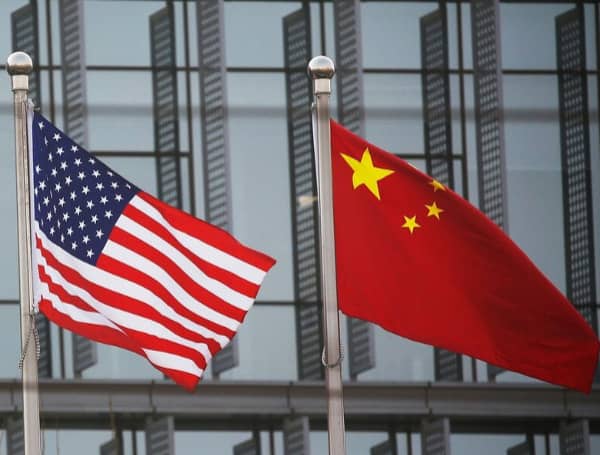China announced Tuesday it will ban exports of several critical minerals and metals to the United States, including germanium, gallium, and antimony, which are essential for the production of semiconductors, military hardware, and batteries. The move comes in response to new U.S. trade restrictions targeting China’s advanced technology capabilities.
China’s Ministry of Commerce stated that the export controls, aimed at “dual-use” items, are designed to protect national security and counteract what it described as the U.S.’s politicization and weaponization of trade. The restrictions also tighten controls on graphite-related products, which are vital for battery production.
READ: Florida Attorney General Ashley Moody Leads Effort To Confirm Pam Bondi As U.S. Attorney General
“The U.S. has broadened the concept of national security, politicizing and weaponizing trade and technology issues, and abused export control measures,” the Ministry of Commerce said in a statement.
The minerals affected by the ban are integral to advanced manufacturing, including semiconductors and high-tech military applications. China dominates the global supply of many of these resources. According to a November report from the U.S. Geological Survey, a complete export ban on germanium and gallium alone could result in a $3.4 billion decrease in U.S. GDP, highlighting the potential economic impact.
This announcement follows a decision by the U.S. Department of Commerce’s Bureau of Industry and Security (BIS) to impose new restrictions on China’s ability to produce advanced semiconductors used in weapons systems, artificial intelligence, and advanced computing.
The U.S.-China tech war continues to escalate as both nations seek to secure dominance in critical technologies. In August, China revealed plans to impose restrictions on antimony exports, another mineral crucial for certain weapons production.
READ: Jake Sullivan: Biden Focused On Strengthening Ukraine Ahead Of Trump Transition
President-elect Donald Trump has signaled a hardline approach to trade, proposing new tariffs on Chinese goods, including a 10% tariff to address concerns over fentanyl-related chemicals originating from China. Trump’s rhetoric has drawn criticism from Beijing, which argued that tariffs would fail to address the U.S.’s underlying economic challenges.
The export restrictions could have ripple effects on global supply chains. Canada and Mexico, key U.S. trade partners, are also closely monitoring the situation. Canadian Prime Minister Justin Trudeau recently met with President-elect Trump to address concerns about potential tariffs on Canadian and Mexican imports, as Trump has threatened to impose sweeping 25% tariffs.
The latest developments underscore the growing tensions between the two economic superpowers. As the U.S. ramps up efforts to curtail China’s technological advancements, Beijing’s control over key resources could become a critical bargaining chip in ongoing trade negotiations.
Please make a small donation to the Tampa Free Press to help sustain independent journalism. Your contribution enables us to continue delivering high-quality, local, and national news coverage.
Android Users: Download our free app to stay up-to-date on the latest news.
Connect with us: Follow the Tampa Free Press on Facebook and Twitter for breaking news and updates.
Sign up: Subscribe to our free newsletter for a curated selection of top stories delivered straight to your inbox.
